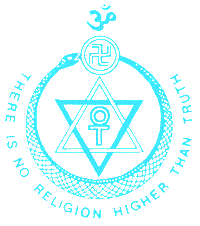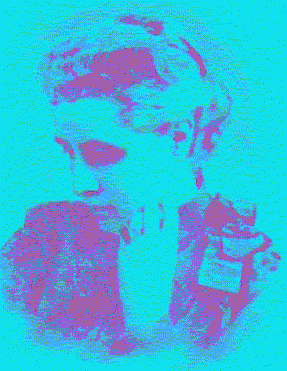KARMA

A Study in
Karma
by
Annie Besant
Published in
1917

Man in The Three Worlds
Man, as we
know, is living normally in three worlds, the physical, emotional and mental, is
put into contact with each by a body formed of its type of matter, and acts in
each through the appropriate body. He therefore creates results in each
according to their respective laws and powers, and all these come within
the
all-embracing law of karma. During his daily life in waking consciousness he is
creating "karma," i.e. results, in these three worlds, by action,
desire and thought. While his physical body is asleep, he is creating karma in
two worlds – the emotional and the mental, the amount of karma then created by
him depending
on the stage
he has reached in evolution.
We may
confine ourselves to these three worlds, for those above them are not inhabited
consciously by the average man; but we should, none the less, remember that we
are like trees, the roots of which are fixed in the higher worlds, and their
branches spread in the three lower worlds in which dwell our mortal
bodies, and
in which our consciousnesses are working.
Laws work
within their own worlds, and must be studied as though their workings were
independent; just as every science studies the laws working within its own
department, but does not forget the wider working of further-reaching
conditions, so must man, while working in the three departments, physical,
emotional and
mental, remember the sweep of law which includes them all within its area of
activity. In all departments laws are inviolable and unchangeable, and each
brings about its own full effect, although the final result of their
interaction is the effective force that remains when all balancing of opposing
forces has been made. All that is true of laws in general is true of karma, the
great law.
Causes being present, events must follow. But by taking away, or adding causes,
events must be modified.
A person gets
drunk; may he say: "My karma is to get drunk"? He gets drunk because
of certain tendencies existing in himself, the presence of loose companions,
and an environment where drink is sold. Let us suppose that he wishes to
conquer his evil habit; he knows the three conditions that lead him into
drunkenness. He may say: "I am not strong enough to resist my own
tendencies in the presence of drink and the company of loose-livers. I will not
go where there is drink, nor will I associate with men who tempt me to
drink."
He changes
the conditions, eliminating two of them, though unable immediately to change
the third, and the new result is that he does not get drunk. He is not
"interfering with karma," but is relying on it; nor is a friend
"interfering with karma," if he persuades him to keep away from boon
companions. There is no karmic command to a man to get drunk, but only the
existence of certain conditions in the midst of which he certainly will get
drunk; there is, it is true, another way of changing the conditions, the
putting forth a strong effort of will; this also introduces a new condition,
which will change the result – by
addition
instead of elimination.
In the only
sense in which a man can "interfere" with the laws of nature he is
perfectly at liberty to do so, as much as he likes and can. He can inhibit the
acting of one force by bringing another against it; he can overcome gravitation
by muscular effort. In this sense, he may interfere with karma as much as he
likes, and should interfere with it when the results are objectionable.
But the
expression is not a happy one, and it is liable to be misunderstood.
The law is:
such and such causes bring about such and such results. The law is
unchangeable, but the play of phenomena is ever-changing. The mightiest cause
of all causes is human will and human reason, and yet this is the cause which
is, for the most part, omitted when people talk of karma. We are causes,
because we are the divine will, one with God in our essential being, although
hampered by ignorance and working through gross matter, which impedes us until
we conquer, by spiritualising, it. The changelessness of karma is not the
changelessness of effects but of law, and it is this which makes us free. Truly
slaves should we be in a world in which everything went by chance. But
according to our knowledge are our freedom and our safety in a world of law. In
the Middle Ages, chemists
were by no
means free to bring about the results they desired, but they had to accept
results as they came, unforeseen and for the most part undesired, even to their
own serious injury.
The result of
an experiment might be a useful product,
or it might
be the reduction of the experimenter into fragments. Roger Bacon set going
causes which cost him an eye and a finger, and occasionally stretched him
senseless on the floor of his cell; outside our knowledge we are in peril, and
any cause we set going may wreck us, for we are mostly Roger Bacons in the
mental and
moral worlds; inside our knowledge we may move with freedom and safety, as the
well-trained chemist moves today. It is true in all the three worlds in which
we live, that the more we know, the more can we foresee and control. Because
law is inviolable and changeless, therefore knowledge is the condition of
freedom. Let us then study karma, and apply our knowledge to the guidance of
our lives. So many people say: "Oh! how I wish I were good," and do
not use the law to create the causes which result in goodness; as though a
chemist should say: "Oh! how I wish I had water," without making the
conditions
which would
produce it.
Again, we
must remember that each force works along its own particular line, and that
when a number of forces impinge on a particular point, the resultant force is the
outcome of all of them. As in our school days we learned how to construct a
parallelogram of forces and thus find the resultant of their composition; so
with karma may we learn to understand the conflict of forces and their
composition to yield a single resultant. We hear people asking why a good man
fails in business while a bad man succeeds. But there is no causal connection
between goodness and money-getting. We might at well say: "I am a very
good man; why cannot I fly in the air?" Goodness is not a cause of flying,
nor does it bring in money. Tennyson touched on a great law when, in his poem
on "Wages," he declared that the wages of virtue were not
"dust," nor rest, nor pleasure, but the glory of an active
immortality. "Virtue is its own reward" in the fullest sense of the
words. If we are truthful, our reward is that our nature becomes more truthful,
and so sequentially with every virtue. Karmic results can only be
of the nature
of their causes; they are not arbitrary, like human rewards.
______________________
KARMA

Find out more
about
Theosophy
with these links

The Cardiff Theosophical Society Website
The National Wales Theosophy Website
If you
run a Theosophy Group, please feel free
to use
any of the material on this site
The Most Basic Theosophy
Website in the Universe
A quick overview of Theosophy
and the Theosophical Society
If you run a Theosophy Group you
can use this as an introductory handout.
Theosophy Cardiff’s Instant Guide
One liners and quick explanations
H P Blavatsky is
usually the only
Theosophist that
most people have ever
heard of. Let’s
put that right
The Voice of the Silence Website
An Independent Theosophical Republic
Links to Free Online Theosophy
Study Resources; Courses,
Writings,
The main criteria
for the inclusion of
links on this
site is that they have some
relationship
(however tenuous) to Theosophy
and are
lightweight, amusing or entertaining.
Topics include
Quantum Theory and Socks,
Dick Dastardly and Legendary Blues Singers.
A selection of
articles on Reincarnation
Provided in
response to the large
number of
enquiries we receive at
Cardiff
Theosophical Society on this subject
The Voice of the Silence Website
This is for everyone, you don’t have
to live
in Wales to make good use of this
Website
No
Aardvarks were harmed in the
The Spiritual Home of Urban Theosophy
The Earth Base for Evolutionary Theosophy
A B C D EFG H IJ KL M N OP QR S T UV WXYZ
Complete Theosophical Glossary in Plain Text Format
1.22MB
________________
Preface
Theosophy and the Masters General Principles
The Earth Chain Body and Astral Body Kama – Desire
Manas Of Reincarnation Reincarnation Continued
Karma Kama Loka
Devachan
Cycles
Arguments Supporting Reincarnation
Differentiation Of Species Missing Links
Psychic Laws, Forces, and Phenomena
Psychic Phenomena and Spiritualism
Quick
Explanations with Links to More Detailed Info
What is Theosophy ? Theosophy Defined (More Detail)
Three Fundamental Propositions Key Concepts of Theosophy
Cosmogenesis
Anthropogenesis
Root Races
Karma
Ascended Masters After Death States Reincarnation
The Seven Principles of Man Helena Petrovna Blavatsky
Colonel Henry Steel Olcott William Quan Judge
The Start of the Theosophical Society
History of the Theosophical Society
Theosophical Society Presidents
History of the Theosophical Society in Wales
The Three Objectives of the Theosophical Society
Explanation of the Theosophical Society Emblem
Glossaries of Theosophical Terms
An Outstanding Introduction
to Theosophy
By a student of
Katherine Tingley
Elementary Theosophy Who is the Man? Body and Soul
Body, Soul and Spirit Reincarnation Karma
Quotes
from the Writings of
Helena
Petrovna Blavatsky
The Secret Doctrine , Volume 2, Page 100
It is only by the
attractive force of the contrasts that the two opposites — Spirit and Matter — can be cemented
together on Earth, and, smelted in the fire of self-conscious experience and suffering, find
themselves wedded in Eternity.
The Secret Doctrine , Volume 2, Page 108
It is the motive,
and the motive alone, which makes any exercise of power become black, malignant, or white,
beneficent Magic. It is impossible to employ spiritual forces if there is the
slightest tinge of selfishness remaining in the operator .... The powers and
forces of animal nature can equally be used by the selfish and revengeful, as
by the unselfish and the all-forgiving; the powers and forces of spirit lend
themselves only to the perfectly pure in heart — and this is Divine Magic.
Isis Unveiled,
Volume 1, Page 36
The Secret Doctrine , Volume 3, Page 14
Even ignorance is better than
Head-learning with no Soul-wisdom to illuminate and guide it.
The Voice of the Silence, Page 43
Annotation - The Path, May, 1888
The Secret Doctrine , Proem [Volume 1], Page 35
Isis Unveiled, Volume 1, Page 210
The Secret Doctrine , Volume 1, Page 134
incarnation of his
God; and when the sense of personal responsibility will be so
Isis Unveiled,
Volume 2, Page 374
It is the motive,
and the motive alone, which makes any exercise of power become
The Secret Doctrine , Volume 2, Page 498
Isis Unveiled, Volume 1, Page 36
From strength to
strength, from the beauty and perfection of one plane to the
greater beauty and
perfection of another, with accessions of new glory, of fresh
knowledge and power
in each cycle, such is the destiny of every Ego, which thus
becomes its own
saviour in each world and incarnation.
The Key to
Theosophy, Page 105
Try
these if you are looking for a local
Theosophy
Group or Centre
UK Listing of Theosophical Groups